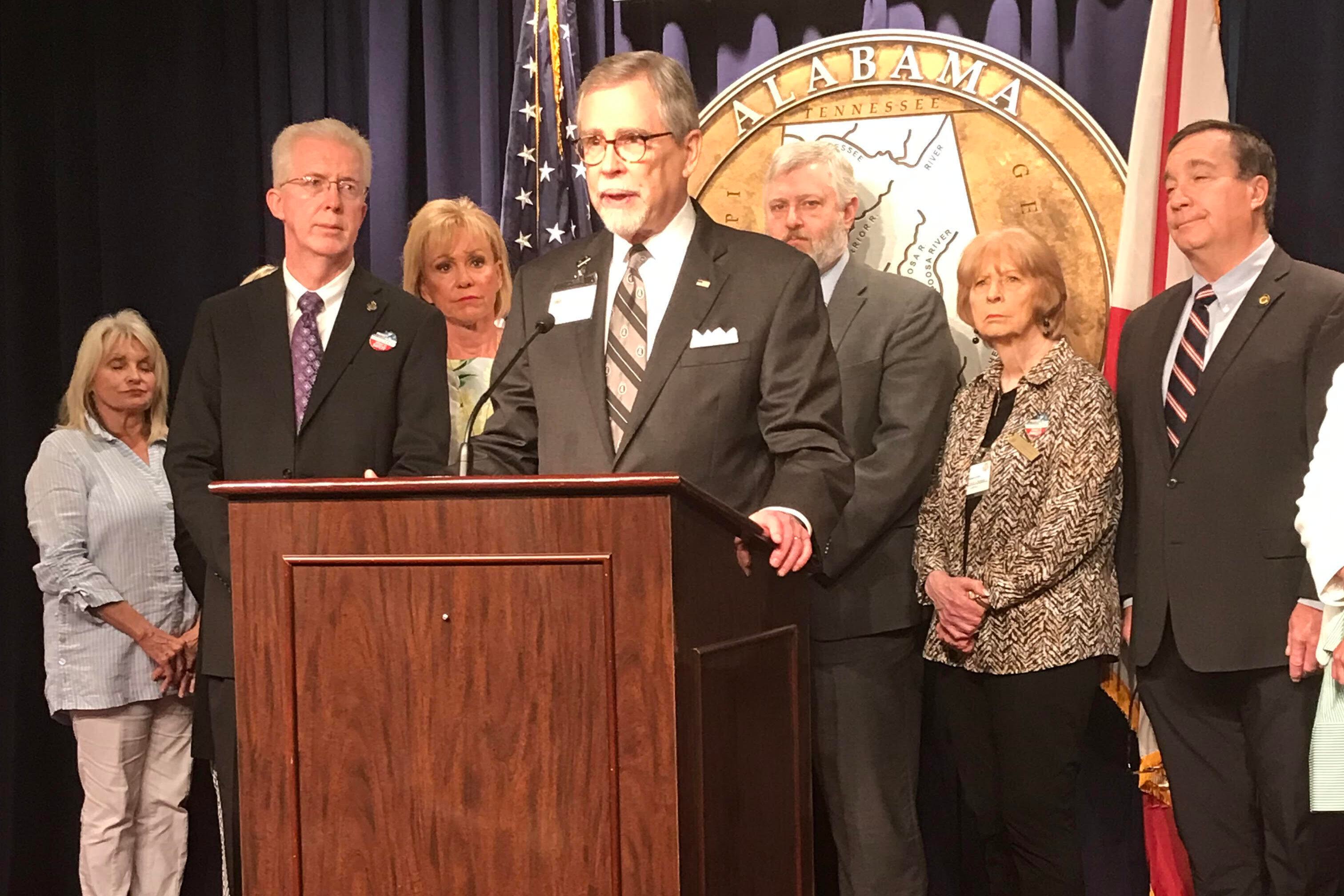MONTGOMERY — Legislators and policy experts called on Senate leadership to put a bill requiring manufacturers to automatically activate the adult content filter on phones and tablets sold in Alabama to a vote in the Senate in the last few remaining days of the session.
House Bill 298 (HB298), the Protection of Minors from Unfiltered Devices Act, is sponsored by State Rep. Chris Sells (R-Greenville). The bill would require manufacturers to enable the existing filters on smartphones and other devices blocking adult content.
The bill would apply to smartphones, tablets and smartwatches — anything activated through a mobile carrier. The settings already exist on current phones and tablets; the bill would require phones to have the filter turned on. After setting up a password to unlock the system, the setting can be turned off or left on, depending on the user's preference.
The bill has passed the House of Representatives and a Senate committee, despite opponents claiming it would create an additional burden on manufacturers and service providers.
Becky Gerritson, executive director of the Eagle Forum of Alabama, said at a press conference at the State House on Wednesday morning, "[T]he purpose for this conference today is to ask Senate leadership to put this common sense bill on the agenda to be voted on before the session is over."
"Every cell phone and tablet has an explicit content filter on it, but it's always on off unless you go through all of the steps to turn it on," she added. "It's very confusing. You have to read a whole list on how to actually turn it on. What this software update does is when the phone is purchased and activated in Alabama… there's a little geolocator on every phone so it knows when it is activated in Alabama that filter just switches to on. Super easy. It's just a simple software update. Retailers don't have to worry about it. You don't have to do anything. If the parents or the adult who owns the phone doesn't want that filter on there, they can just use a passcode to turn it off."
State Sen. Dan Roberts (R-Mountain Brook) said, "[I]n 2020, we passed a resolution declaring pornography a public health crisis in Alabama."
"There was a lot of pushback on that, but what we're telling you today is that this is a simple software update that can be done on any electronic device," he continued. "All we're asking is that filter be turned on by a simple software update when the phone is activated and that will have the opportunity to protect minors in this state from something that is long-term a crisis for them as they grow older."
Melea Stephens, a Birmingham-based marriage and family therapist and board member with the National Center on Sexual Exploitation, outlined, "[A]s a state we've acknowledged the devastating harms to the brain, relationships, and society through early exposure to this material."
"HB 298 is a very practical next step that our state can take to protect children from this illegal content," she added. "It's simply asking manufacturers to activate to enable existing filters that are already on smartphones and tablets. It's just a software update. It's not a hardware change. It's not a manufacturing change. It's a very simple act for the manufacturers."
Greg Davis, president and chief executive officer of the Alabama Citizens Action Program, explained, "[W] e're just asking for us to do something very common sense, and I think it's a good chance for Alabama to lead the way nationally."
"This is a moral issue. We should protect our kids," he continued. "Early exposure to pornography leads to earlier addiction which leads to many more views of pornography which means money, money, money for the industry. Of course, the industry wants to see the filters turned off. This is something that should be done all across the country. The filters should be turned on when you buy one of these devices in this day and time."
Eric Johnston, president and general counsel of the Southeast Law Institute, argued the legislation wasn't in conflict with the First Amendment.
"Somewhere in the process of this bill there were suggestions that this bill would violate the First Amendment free speech clause. That's not true," Johnston said. "This bill has in it the language directly from Supreme Court cases decades old that established the harmful to minors precedent is a subset of obscenity. Applying the standard of harmful to minors that is in this bill would only stop unprotected speech. There's no question about the constitutionality about this bill."
There are three days left in the legislative session.
To connect with the author of this story or to comment, email caleb.taylor@1819News.com.
Don't miss out! Subscribe to our newsletter and get our top stories every weekday morning.









